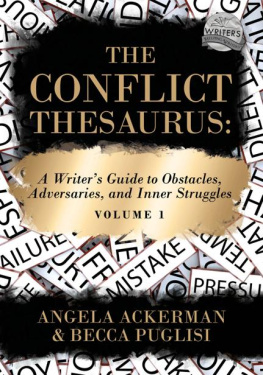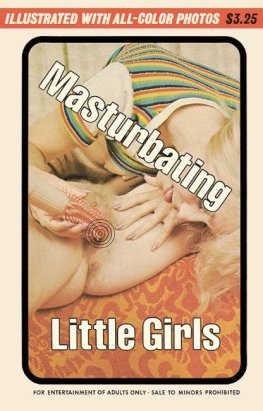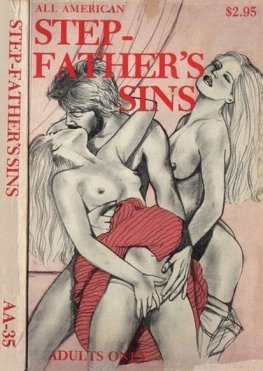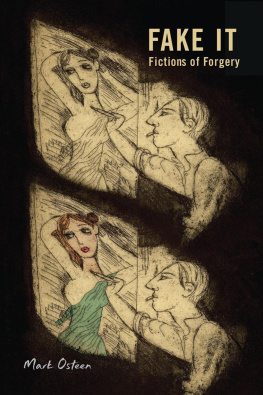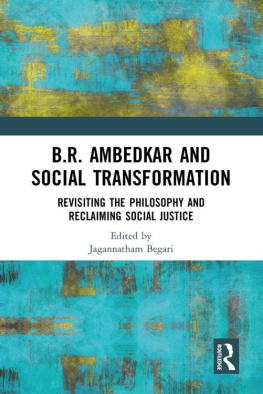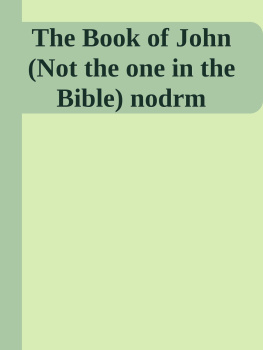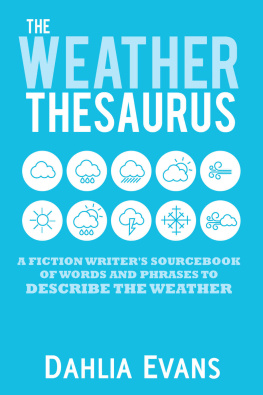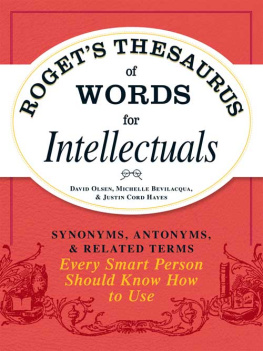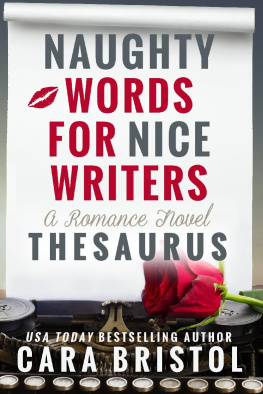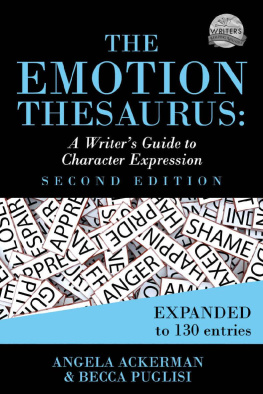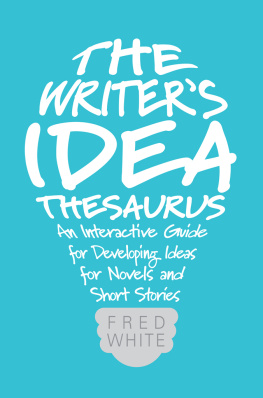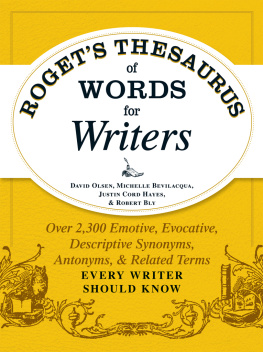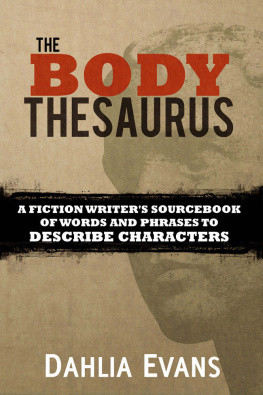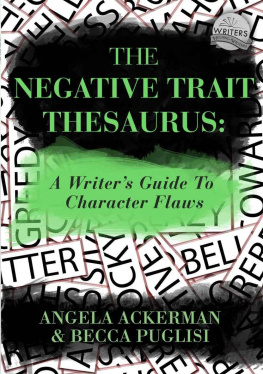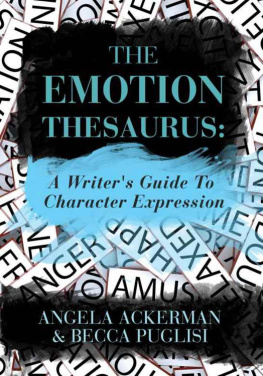Unknown - The Conflict Thesaurus: A Writers Guide to Obstacles, Adversaries, and Inner Struggles (Volume 1)
Here you can read online Unknown - The Conflict Thesaurus: A Writers Guide to Obstacles, Adversaries, and Inner Struggles (Volume 1) full text of the book (entire story) in english for free. Download pdf and epub, get meaning, cover and reviews about this ebook. year: 2021, publisher: Pacific Grove: Smashwords Edition,, genre: Romance novel. Description of the work, (preface) as well as reviews are available. Best literature library LitArk.com created for fans of good reading and offers a wide selection of genres:
Romance novel
Science fiction
Adventure
Detective
Science
History
Home and family
Prose
Art
Politics
Computer
Non-fiction
Religion
Business
Children
Humor
Choose a favorite category and find really read worthwhile books. Enjoy immersion in the world of imagination, feel the emotions of the characters or learn something new for yourself, make an fascinating discovery.
- Book:The Conflict Thesaurus: A Writers Guide to Obstacles, Adversaries, and Inner Struggles (Volume 1)
- Author:
- Publisher:Pacific Grove: Smashwords Edition,
- Genre:
- Year:2021
- Rating:5 / 5
- Favourites:Add to favourites
- Your mark:
- 100
- 1
- 2
- 3
- 4
- 5
The Conflict Thesaurus: A Writers Guide to Obstacles, Adversaries, and Inner Struggles (Volume 1): summary, description and annotation
We offer to read an annotation, description, summary or preface (depends on what the author of the book "The Conflict Thesaurus: A Writers Guide to Obstacles, Adversaries, and Inner Struggles (Volume 1)" wrote himself). If you haven't found the necessary information about the book — write in the comments, we will try to find it.
Unknown: author's other books
Who wrote The Conflict Thesaurus: A Writers Guide to Obstacles, Adversaries, and Inner Struggles (Volume 1)? Find out the surname, the name of the author of the book and a list of all author's works by series.
The Conflict Thesaurus: A Writers Guide to Obstacles, Adversaries, and Inner Struggles (Volume 1) — read online for free the complete book (whole text) full work
Below is the text of the book, divided by pages. System saving the place of the last page read, allows you to conveniently read the book "The Conflict Thesaurus: A Writers Guide to Obstacles, Adversaries, and Inner Struggles (Volume 1)" online for free, without having to search again every time where you left off. Put a bookmark, and you can go to the page where you finished reading at any time.
Font size:
Interval:
Bookmark:
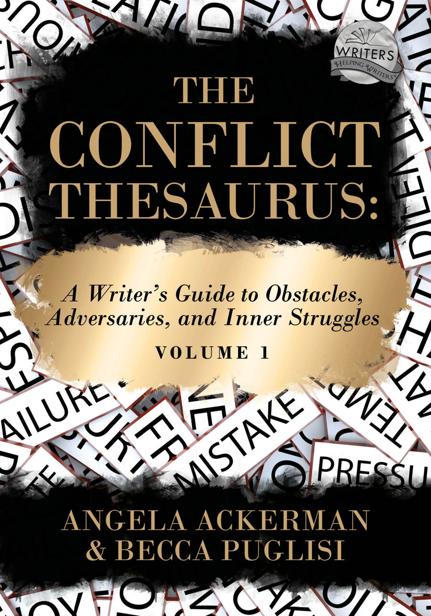

THE CONFLICT THESAURUS:
A Writers Guide to Obstacles, Adversaries, and Inner Struggles
VOLUME 1
ANGELA ACKERMAN
& BECCA PUGLISI
THE CONFLICT THESAURUS: A WRITERS GUIDE TO OBSTACLES, ADVERSARIES, AND INNER STRUGGLES. VOLUME 1.
Copyright 2021 by Angela Ackerman & Becca Puglisi
All rights reserved
Writers Helping Writers
No part of this publication may be reproduced or distributed in print or electronic form without prior permission of the authors. Please respect the hard work of the authors and do not participate in or encourage the piracy of copyrighted materials.
ISBN: 978-1-7361523-0-0
Edited by Michael Dunne and C.S. Lakin
Book cover design by JD Smith Design
Book formatting by JD Smith Design
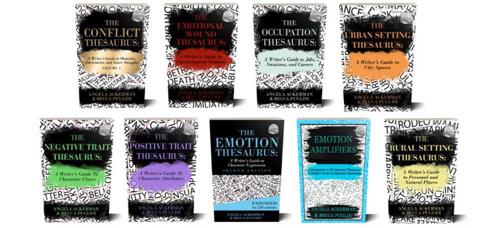
Available in eight languages, sourced by universities, and recommended by editors and agents all over the world, this best-selling series is a writers favorite for mastering description and powering up storytelling.
The Emotion Thesaurus: A Writers Guide to Character Expression (Second Edition)
The Positive Trait Thesaurus: A Writers Guide to Character Attributes
The Negative Trait Thesaurus: A Writers Guide to Character Flaws
The Urban Setting Thesaurus: A Writers Guide to City Spaces
The Rural Setting Thesaurus: A Writers Guide to Personal and Natural Places
The Emotional Wound Thesaurus: A Writers Guide to Psychological Trauma
The Occupation Thesaurus: A Writer's Guide to Jobs, Vocations, and Careers
Emotion Amplifiers: A Companion to The Emotion Thesaurus
All right, hands up: Whats the one thing we cant get enough of in fiction but we avoid like a screaming toddler in real life? Conflict.
And its no wonder. Conflict is painful. Messy. Unpredictable. It leads to scrapped plans, wasted effort, stress, and worry. It can force us into corners, prey on our worst fears, and push us past our limits both mentally and physically. No, we dont much care for conflictor, at least, not too much of it. Wed much rather create a plan, follow it, and then prance our way to the finish line.
But fiction? Oh, thats different. As readers, we become book-gripping masochists, relishing every upset, backstab, and shove off a cliff that comes about. Let it rain fire and poison! Bring on the horrific, impossible choices! Sharpen the monsters fangs and set it loose! We cant get enough.
It seems ironic that something we try to avoid in real life is the very thing we cant get enough of in fiction. Psychologically speaking, though, it makes perfect sense. Books do not significantly trigger our fight-or-flight instincts, making it safe to experience conflictafter all, that bad stuff is happening to someone else. Yet, if the story is well written, it draws us in so were right there with the hero or heroine, feeling some of their dread, anger, and confusion. We identify with their experiences because our own real-life ones have taught us the agony of uncertainty and fear and what its like to feel completely outmatched.
A book gives us a front-row seat as the main character is dropped inside lifes rock tumbler. Will the relentless, destructive machine crush them into oblivion? Or will they emerge, rough edges worn away, a mission thrumming in their chest to achieve their goal whatever the cost?
This second outcome is what we hope for: that they persevere. Because real life and fiction converge in one very important place: the euphoria that comes with achievement. Whether it concerns us or our characters, that heady moment of getting what is needed most cant be matched. And this is where we arrive at true irony. What makes a moment of victory so powerful, affirming, and satisfying is knowing what it took to win: the hard work, sacrifice, and costs. And that feeling only arises with opposition, obstacles, problems, and challenges. In other words: conflict. So, while we may not like adversity in real life and often try to avoid it, the act of overcoming it is what makes us feel truly alive.
In fiction, conflict is the crucible that tests, bruises, and shapes our characters. Externally, it pushes the plot onward by supplying the resistance needed to force characters to scrutinize their world, make choices, and take action to get what they want. Internally, conflict generates a tug-of-war between the characters fears, beliefs, needs, values, and desires. Ultimately, it forces them to choose between an old, antiquated way of thinking and doing, or a new, evolved way of being, because only one will help them get what they want. Story expert Michael Hauge calls this a choice between living in fear and living courageously. Can the character make the hard decisions, step out onto the ledge despite fear, and embrace change, or do they retreat? This battle between the interconnected elements of the characters belief system is why readers tune in. It is a powerful, emotional echo of their own ongoing struggles to overcome fear and achieve growth.
If all this internal talk is making you think character arc, youre picking up what were laying down. Conflict, as painful a teacher as it can be, is an opportunity for characters to discover who they really arebut only if they can let go of who they were. In this way, it drives character development. It demands action, forcing the character to step up, fight, and recommit to the goal, which in turn proves their worthiness to readers. It will push the character to their limits and, in their most desperate moments, reveal who they truly aretheir morals, values, and beliefs.
Whether they succeed or fail, who your character is at the start of the story will differ from who they are at the end because conflict is the harbinger of change.
In 2016, the University of Vermont and the University of Adelaide took on an ambitious project: analyze the emotional arcs of 1,737 works of fiction from Project Gutenbergs collection and determine how many narrative plots they consisted of. The answer? Six. Each could be attributed to one of these six distinctive plot shapes that emerged over the scope of the story:
Rags to Riches: The story of a character who starts out disadvantaged in some way and goes on to overcome adversity and make it big. This story has a steady rise shape that takes it from failure to triumph (rise from despair).
Riches to Rags: The story of a character who has it all, then loses everything. This tragedy has a steady fall shape to it, a decline from start to finish (fall from grace).
Man-in-a-Hole: The story of a character enjoying a successful status quo who suffers a fall, taking him to the lowest of lows, which he then fights to pull himself out of. The shape of this story is one where two highs frame a dip or hole (fall-rise).
Icarus: The story mirrors the Greek tale of Icarus, who used wings of wax and feathers to escape his prison. But when he ignored the warnings about flying too high, the sun melted his wings and he plummeted to his death. This shape is marked by a characters rise and then his untimely fall (rise-fall).
Font size:
Interval:
Bookmark:
Similar books «The Conflict Thesaurus: A Writers Guide to Obstacles, Adversaries, and Inner Struggles (Volume 1)»
Look at similar books to The Conflict Thesaurus: A Writers Guide to Obstacles, Adversaries, and Inner Struggles (Volume 1). We have selected literature similar in name and meaning in the hope of providing readers with more options to find new, interesting, not yet read works.
Discussion, reviews of the book The Conflict Thesaurus: A Writers Guide to Obstacles, Adversaries, and Inner Struggles (Volume 1) and just readers' own opinions. Leave your comments, write what you think about the work, its meaning or the main characters. Specify what exactly you liked and what you didn't like, and why you think so.

